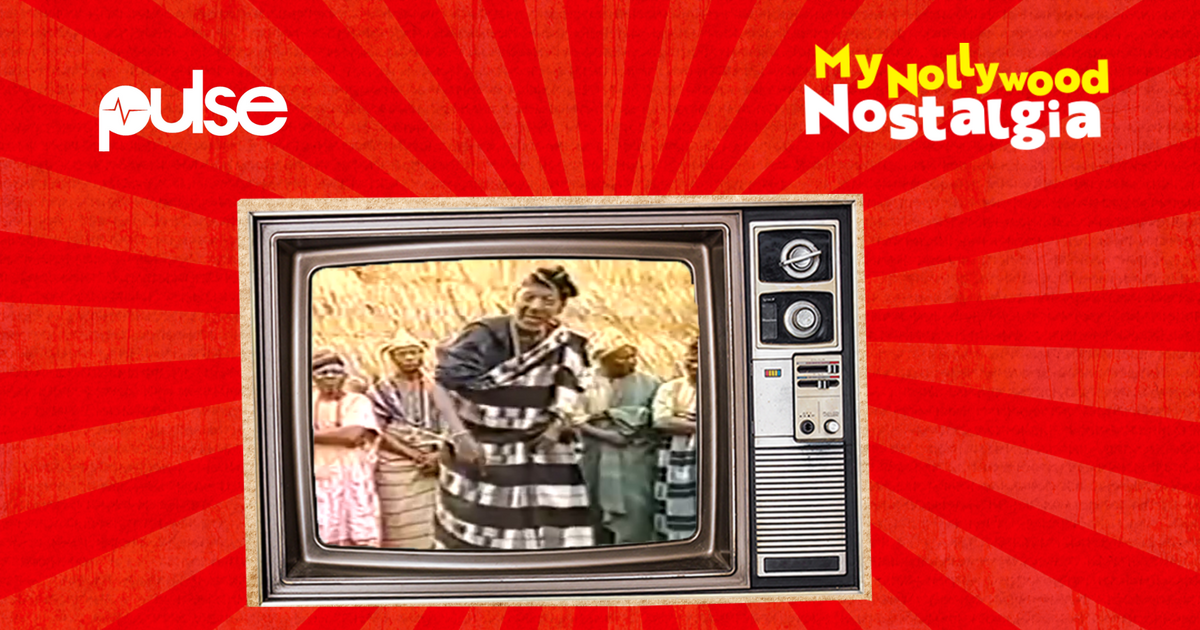In the Adebayo Faleti film, Bashorun Gaa, the deceased monarch had ordered his own father-in-law’s beheading in retaliation for his wife joking about his small physical frame. In Gaa’s narrative-setting review of Majeogbe’s reign, the king was bad for the empire and had to go for the common good.
It’s a page ripped right out of William Shakespeare‘s Julius Caesar, as the scene plays out in the same manner Brutus explains to the plebeians that he killed Caesar to preserve the future of Rome.
“Kings who massacre innocent blood, if we eliminate them, is it bad? Gaa is defending the rights of the people,” Gaa, referring to himself in the third person, assures his captive audience, no different from Shakespeare’s simple-minded commoners.
The kingmaker’s zesty monologue is a showy victory lap, a celebratory dance on Majeogbe’s still very warm grave and his reign of tyranny in Oyo. But anyone who knows the story of the real Bashorun Gaa, an 18th-century military juggernaut and influential political figure in the old Oyo empire, knows this isn’t the full story.
Bashorun Gaa, written and directed by Faleti, is the story of a tyrannical chieftain responsible for the dethronement of four Alaafins, via murder or forced suicide. In Gaa’s world, power does not flow naturally, with the Alaafin as the head of the empire. Power is bent to Gaa’s will, and everything else is unnatural.
In a scene before his aforementioned public grandstanding, Adebiyi (Jide Kosoko) who’s next in line to the throne flees Oyo so he doesn’t become king and perhaps another victim of Gaa’s reign of terror.
The next, equally reluctant, candidate for the throne is Abiodun Adegoolu (Tubosun Odunsi), who gets Gaa’s seal of approval because he’s young and potentially different from all of the other monarchs whose reigns the kingslayer ended.
But the two inevitably engage in an unpleasant power tussle, a situation that isn’t any different from what regularly plays out in Nigeria’s modern political institutions, between godfathers and their installations who expectedly attempt to assert their independent authority at some point.
The evergreen nature of the conflict is what makes the story of Bashorun Gaa resonate, relevant now as potently as it was hundreds of years ago.
With his diabolical influence, Gaa wields control over the Oyo empire’s political system and corrupts everything that should serve the common good, like equity and justice.
In his fiefdom, his nephew committing cold-blooded murder in broad daylight is a regular Tuesday, and Gaa himself callously sanctioning the ritual murder of a princess isn’t expected to attract consequences.
But the megalomaniac’s predictable fall from grace reinforces the agelong dangers of being too drunk on power to administer it with necessary restraint. After enduring numerous humiliations until he reaches breaking point, Adegoolu marshalls his forces to end Gaa’s reign and restore the flow of power. It’s a narrative arc, real or imagined, that’s as certain as the sun rising in the east and setting in the west.
Gaa’s downfall is a cautionary tale about the consequences of not understanding one key lesson about power: it is transient and trying to change its nature never ends well.






